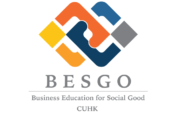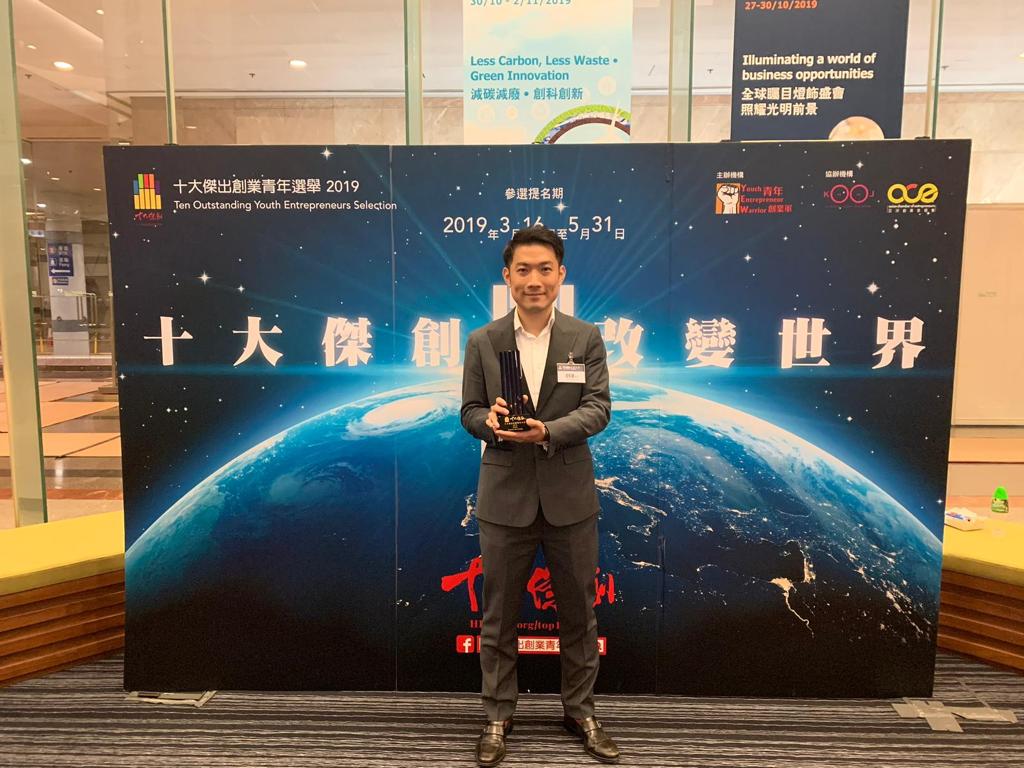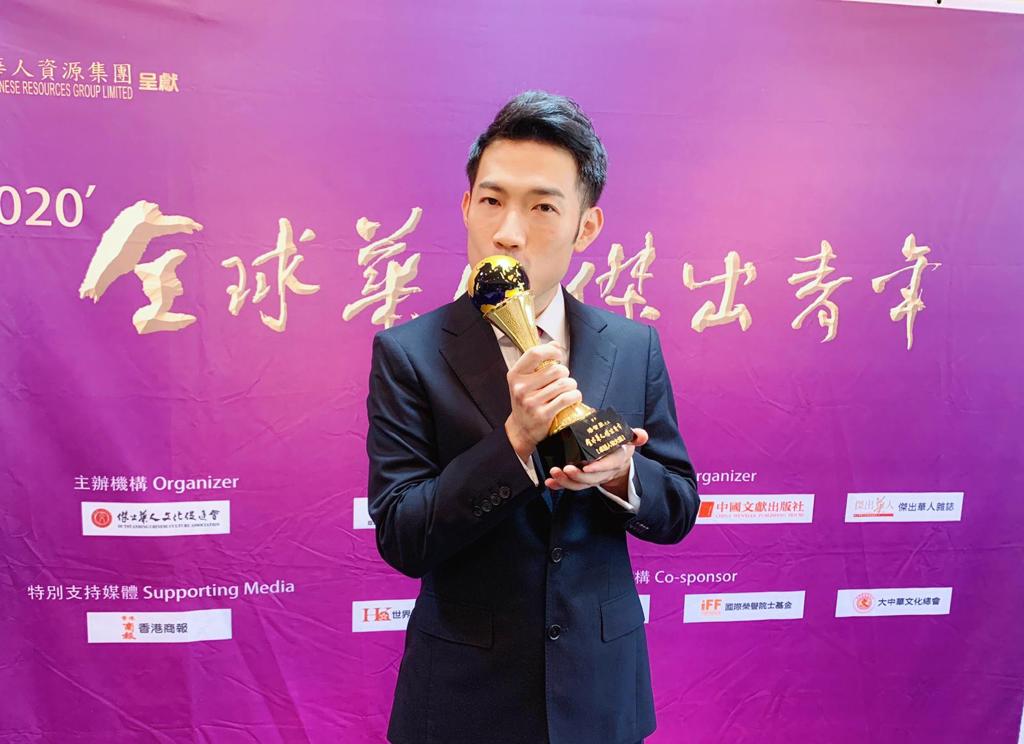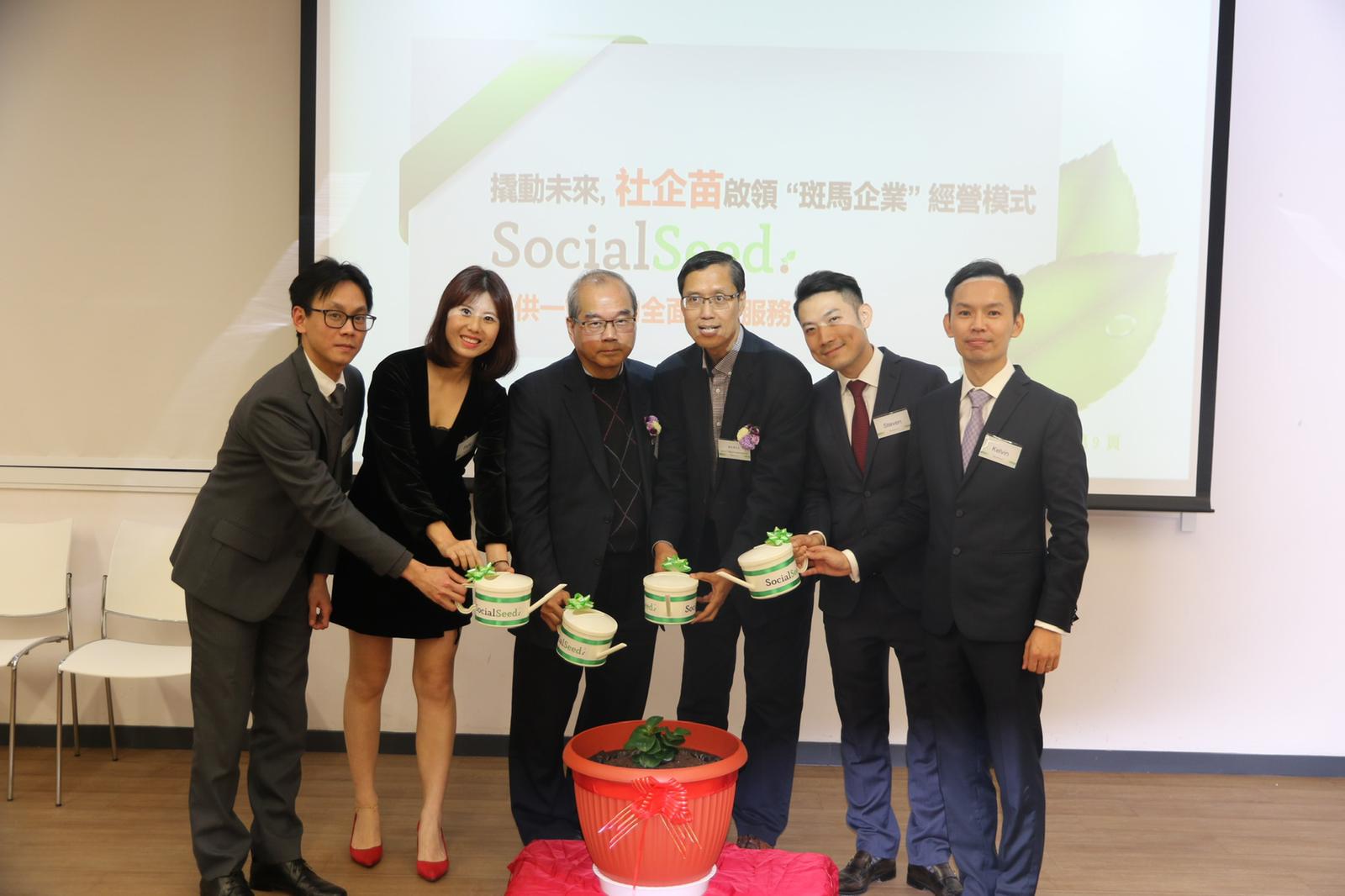MBA Alumnus Guides the Youth through the Road of Social Entrepreneurship 社企導航——企業家的成人之美
本文章的中文版本在英文版本的下方。
From the founder and CEO of Protech (博勝電子) to receiving numerous achievements such as the Hong Kong Ten Outstanding Youth Entrepreneurs 2019, Greater Bay Leader and Global Outstanding Youth Chinese Person 2020, it is no wonder that many would expect our MBA alumnus Pun Chi Ho, Steven to have led a smooth and successful life. What is the story behind his success?
Roadmap to Entrepreneurship: Fearlessness with a Plan for Success
Being an entrepreneur has been Steven’s answer to his dream since he was in primary school, a career aspiration he continued to work towards as he grew up. After taking the HKCEE in Form 5, he did not continue his academics, and instead took the initiative to step out of his comfort zone to start a business with his friends. With interests in entering the fashion industry, they set off to Guangzhou to investigate the market landscape, only to realise that the low technological requirements led to low entry barriers. Considering the limited success due to ubiquitous competition, they decided to set aside this plan and patiently await the next chance.
The 2008 Summer Olympics hosted in Beijing witnessed Steven’s second entrepreneurial story. Back then, HDMI technology was new to the market and offered a higher resolution than traditional television. Despite not having an engineering background, Steven had a wave of inspiration to broadcast the Olympics through leveraging HDMI and commenced his research. Amidst the global financial crisis where many find themselves in a tough situation, he decided to take the opportunity and establish Protech. As Steven notes, “it takes the right people in the right place at the right time to make an entrepreneurial venture successful.” Protech now has businesses in Hong Kong and the mainland, as well as developing in international markets to bring Hong Kong’s technology to the global stage.
Considering continuous self-enhancement to be his philosophy, Steven embarked on the academic journey once again and took the Master of Business Administration (MBA) at CUHK Business School. The MBA students came from diverse backgrounds such as finance and public relations, but they came together with similar beliefs. The MBA curriculum at CUHK covered ideas such as social entrepreneurship, where businesses profit and solve social issues at the same time. Many MBA students were part of the workforce and understood the difficulties in setting up their own businesses, from sourcing capital to understanding the market and industry knowledge, which pose challenges in the entrepreneurial road.
Social Seed: Nurturing Young Social Entrepreneurs
Along with his fellow MBA students, Steven established Social Seed (社企苗) with the vision to provide a platform for aspiring social entrepreneurs to set up their own businesses, through providing support in technology, capital, talent, and professional knowledge. At first, Social Seed focused on helping social enterprises to write business proposals for government funding applications, but as time goes on, they realised the business model of a social enterprise has constraints in sustainability once the initial funding is used up. Steven and his partners decided to shift Social Seed’s attention to assist social enterprises to seek for new sales channels, which provides a continuous revenue flow for social enterprises, thereby fostering sustainable development. Their hard work paid off in the end – many are now self-financing business and make a positive impact on the community.
MatrixSense Technology Group is one of the most successful businesses among the many Social Seed projects. Mainland China’s smart city initiatives prompt the combination of 5G networks and AI technology to reduce human labour and power city operations, and amidst the pandemic, a contactless and touchless user experience became vital, especially in areas such as underground transportation, giving rise to higher demand of AI-powered experiences. Steven advised on one of the social enterprises to grasp this opportunity and bring AI technology to Shenzhen Futian station. MatrixSense mainly develops conversational bot service that enables businesses to build connected customer experiences with easy and contextualized interactions. It suits the emerging market demand on AI technology under the pandemic. The company set up inquiry machines in place of manned customer service centres. With big data analytics, ICT and more, AI technology addresses customer needs and reduces the number of staff in a station, reducing transmission risks. The initiative was well-received, not only enabling the social enterprise to establish its brand, but also receiving entrepreneurship awards.
Looking ahead, Steven reveals that he will take the role of an investor rather than an entrepreneur, funding sectors that he finds interests in. There is now an abundance of youths with the aspiration to set up their own company and fulfil social responsibility to improve our society. Steven has seen many ambitious youths with the heart to serve our society but constrained by their lack of experience. “It would be better for university students to gain more experience after they graduate before they consider contributing to society.” To Steven, it is critical to first gain knowledge and work in the industry to have an in-depth understanding of the landscape. It is more beneficial to start one’s own company after obtaining experiences in both industry and life.
Road to Success: Having a Principled and Determined Mindset
With multiple roles in different sectors, from Protech’s electronics and technology to Social Seeds and other businesses, how does Steven maintain a healthy work-life balance? As Steven contemplates, “my kids were small back then, and aside from taking care of my family, I also needed to complete my master’s degree and manage corporal affairs – there was quite a bit of pressure.” Steven had his business in mainland China, whilst constantly travelling back to Hong Kong to manage Social Seed, academics, and family, through which his time management became crucial to handling all these affairs.
Furthermore, his businesses had the common theme of helping others – Protech aims to advance Hong Kong’s electronics industry and establishes Hong Kong’s brand in the international market, as well as bringing the research technology to mainland China; Social Seed supports the development of social enterprises in making a social impact – the common vision enables Steven to stay determined amidst challenges and strive for his goals. Started from scratch, Steven persevered despite the challenges and failures along his road to entrepreneurship. His story and life philosophy are highly recommended to students with the ambition to become an entrepreneur.
Stepping out of his comfort zone, Steven was determined to take on numerous difficulties he encountered – notwithstanding the financial crisis, he was unfearful of failures and was eager to challenge himself. It is normal to face difficulties in setting up a business, from limited capital to technology, but only the successful businessmen will persist and come up with solutions to tackle these hardships. Self-control is another factor of success to Steven. Unlike employees, entrepreneurs need to continuously follow up with the business’s daily operations and often they have to count on themselves and explore on their own. Without a clear plan, it is difficult to envision goals within an expected timeframe. The ability to adapt is also crucial. With everchanging technological advancements, our lifestyle and consumption patterns change frequently. It becomes important for entrepreneurs to exemplify agility in adapting to consumer needs and remain in the market. Finally, Steven’s last ingredient to success is to be self-motivated and strive for continuous self-improvement as he embarks on the journey to success.
校友潘智豪(Steven)是博勝集團的主席和創辦人,獲得無數獎項,例如全球華人傑出青年、2020年大灣區青年領袖、2019年十大傑出創業青年等。年紀輕輕的他,成就非凡,究竟風光背後,藏著什麼故事?
創業大計:破釜沈舟的勇氣
當小學老師問及「我的夢想」,尚在稚齡的Steven已經希望做個企業家,不斷朝著目標進發。中五會考後,大多學生會選擇繼續學業,他卻毅然走出舒適圈,與朋友計畫創業。他們對時裝很有興趣,親身到廣州考察,打算進軍服裝市場。經過無數觀察與考量後,他們認為服裝市場門檻較低、技術含量不高,容易入行,因而有更多競爭者,難以闖出好成績,唯有放棄,靜待下次機會。
2008年北京奧運,是Steven 第二個創業故事的開始。當時,高畫質多媒體介面(HDMI) 技術剛推出,比起一般電視更清晰、畫質更好。他並非修讀機械工程,但認為用新技術轉播奧運有利可圖,於是努力蒐集資料。最後,在人人自危的金融風暴下,他選擇創業,把握機遇,創造了自己的商業王國。「對創業者來說,天時、地利、人和缺一不可!」現在,Steven的公司(博勝電子)在香港和國內也有業務,更投身海外市場,把香港科技帶到國際,發展相當成功。
Steven其中一個理念,就是不斷增值自己,故此在中文大學修讀工商管理碩士課程(MBA)。課程的同學來自五湖四海,有金融業、公共關係等,但一群同學意外地擁有相同的理想。碩士課程介紹了社會企業:營利之餘,亦不忘為社會解決問題,任重道遠。MBA的學生大多在社會打拼過,深知創業艱難,非一朝一夕之事,除了資金,還要懂得行情、相關知識,並不簡單。
發展社企,提攜後進
有見及此,Steven和同學們創立了社企苗(Social Seed),希望可以搭建一個創業平台,透過科技、資金、人才、專業知識,幫助社企開展業務,貢獻社會。最初,社企苗協助社企撰寫計畫書,申請政府資助,獲得創業資金。時日一久,發現社企的營利模式比較薄弱,一旦用完創業資金,就很難繼續發展。Steven和合作夥伴隨即改變營運模式,從協助社企申請資金,改為開拓銷售渠道。社企保持銷售額,才能獲得利潤,持續發展。他們的心血沒有白費,當中不少社企能自負盈虧,獨當一面,開創先河。
萬御科技集團就是當中的成功例子。內地注重發展「智慧都市」,以5G網絡為基礎,採用AI技術,減少人手操作,令城市運作更順暢。地鐵運輸是城市運作的樞紐,是重要一環。疫情肆虐之下,保持社交距離尤其重要,令AI技術的需求更迫切、趕急。
萬御科技看準時機,把人工智能技術帶到深圳福田地鐵站。集團的核心技術:3D人工智能語言客服系統、AI自然語言處理引擎等,正正貼合疫情下的新興市場需求。他們設立查詢機器,代替傳統的客戶服務。AI通過大數據分析、通訊科技等,解決乘客需要,代替傳統的人手服務,減少地鐵站內的人數,降低乘客染病的風險。社企的服務廣受好評,成功建立品牌,更獲得創業獎項。
至於未來的方向,Steven 說不會再創業,只會當投資者,注資有興趣的產業。時下年輕人多有創業雄心,亦有社會責任,想為大眾出力。他在社企苗碰過許多志向遠大的年輕人,一心建設社會,但缺乏經驗,始終難成大器,滿腔熱血化為烏有。「大學畢業生最好先累積經驗,再考慮回饋社會。」Steven認為要先有豐富的知識,再在相關行業工作,了解行情,熟悉業務。當人生閱歷漸多,增廣見聞後,才考慮創立社企。
成功之道:嚴以律己,永不言敗
Steven身兼多職,活躍於不同界別,不僅要經營本行的電子業,還有營運社企苗和其他業務,究竟如何平衡工作與生活?「當時孩子年紀尚小,除了照顧家庭,還要完成碩士課程、管理公司業務,工作壓力實在很大。」Steven的公司在內地,而社企苗、學業、家庭都在香港,在兩地之間來來回回,憑著良好的時間管理才能兼顧各項工作。
加上,他的公司有個共同使命:幫助他人。博勝電子希望一改本地的電子業風潮,打造真正的香港電子品牌,揚聲國際,同時把科研技術帶到內地;社企苗協助初創社企發展業務,貢獻社會。他們不單是一盤生意,當中更包含Steven回饋社會的理想,激勵他迎難而上,為目標奮鬥。他白手興家,經過無數的失敗和嘗試,不屈不撓,才有今天的成就。他的人生哲學,十分值得有志創業的同學參考。
首先,他勇於跳出舒適圈,有毅力面對困難。即使金融風暴施虐全球,他也不怕失敗,選擇創業,樂意面對挑戰。做生意難免會遇到大大小小的困難,例如缺乏資金、技術等等。常人可能選擇放棄,但成功的人會堅持,想出不同的辦法解決問題。第二,他有良好的自制能力。創業家非普通員工,需要親身跟進日常事務和主動實踐,靠自己摸索前路。若無清晰計畫,難以在預期之內達到目標,取得成功。第三,他懂得靈活變通,適應力強。現代科技日新月異,我們的生活模式、習慣經常轉變。創業家需要靈活變通,隨時作出調整,迎合大眾需要,才不會被市場淘汰。最後,他十分上進,不斷增值自己,才能突圍而出,走近成功。
Student reporters: Lam Mei Suet (IBBA/2), Tsang Chiu Yin (IBCE/2) and Chow Shuk Wa (HIST/3)




